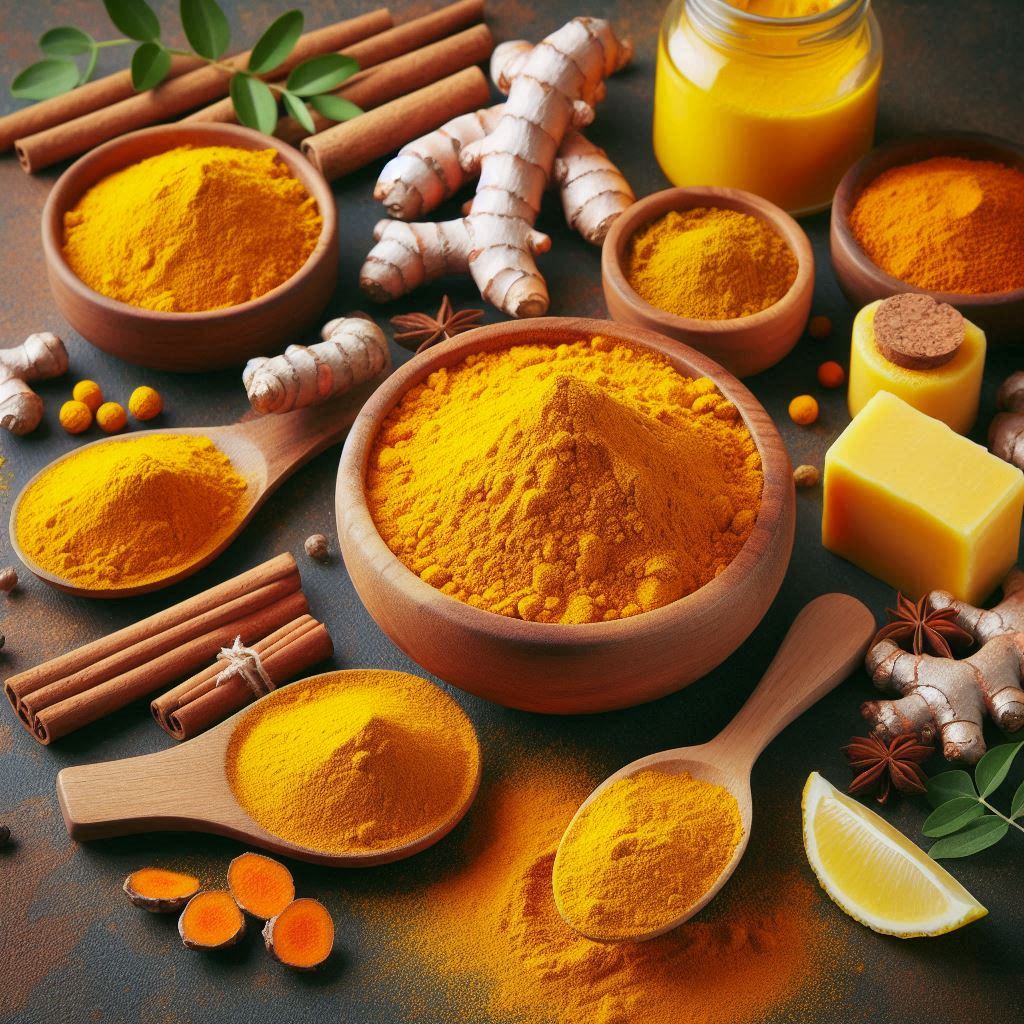
Dandruff is a pesky scalp condition that leaves many of us scratching our heads—literally and figuratively. The flakes, the itch, the irritation—it’s a trio no one wants to deal with. While the shelves are lined with anti-dandruff shampoos and treatments, more people are turning to nature’s pantry for solutions. Enter turmeric, a golden spice that’s been a staple in kitchens and medicine cabinets for centuries. But here’s the burning question: does turmeric help dandruff? In this article, we’ll uncover the potential of turmeric as a dandruff fighter and share three powerful DIY remedies you can whip up at home. Whether you’re tired of chemical-laden products or just curious about natural alternatives, this guide is for you. Let’s dive in and explore how this vibrant spice might just be your scalp’s new best friend.
What Is Dandruff and Why Does It Happen?
Before we get into whether turmeric helps dandruff, let’s break down what we’re dealing with. Dandruff isn’t just about those annoying white flakes dusting your shoulders—it’s a chronic scalp condition that involves the shedding of dead skin cells at an accelerated rate. You might notice itching, redness, or even a tight, uncomfortable feeling on your scalp. But what’s behind it?
Dandruff can stem from several culprits:
- Seborrheic Dermatitis: A condition that causes oily, irritated skin and, when it hits the scalp, flaky dandruff.
- Malassezia Yeast: This naturally occurring fungus can overgrow, triggering inflammation and speeding up skin cell turnover.
- Dry Skin: Especially common in colder months, dry scalp can flake off and mimic dandruff.
- Product Sensitivity: Harsh shampoos or styling products can irritate your scalp, leading to flakes.
- Neglected Hair Care: Skipping washes can let oils and dead skin pile up, worsening the problem.
Knowing these triggers helps us see why a multi-talented ingredient like turmeric might step up to the plate. Its properties could tackle inflammation, microbes, and dryness all at once—but does it really work? Let’s find out.
The Science Behind Turmeric: Does Turmeric Help Dandruff?
So, does turmeric help dandruff? To answer that, we need to zoom in on what makes turmeric special: curcumin. This compound gives turmeric its bright yellow hue and powers its reputation as a healing spice. Used for ages in Ayurveda and traditional Chinese medicine, turmeric boasts a resume that includes anti-inflammatory, antimicrobial, and antioxidant skills. Here’s how these could make a dent in your dandruff woes:
- Fighting Inflammation: If seborrheic dermatitis is stoking your dandruff, curcumin’s ability to calm inflammatory responses could ease redness and flaking.
- Kicking Microbes to the Curb: That pesky Malassezia yeast doesn’t stand a chance against turmeric’s antimicrobial punch, potentially slowing its overgrowth.
- Shielding Your Scalp: Antioxidants in turmeric protect skin cells from damage, which might help keep your scalp healthier and less prone to flaking.
- Soothing the Itch: An irritated scalp gets some TLC from turmeric’s calming effects, cutting down on that urge to scratch.
While science hasn’t handed us a stack of dandruff-specific turmeric studies yet, early research and plenty of anecdotal buzz suggest it’s worth a shot. Studies on curcumin’s effects on skin conditions like psoriasis and eczema hint at its scalp-saving potential. Still curious if turmeric helps dandruff? The proof might be in the pudding—or rather, the DIY remedies we’re about to explore.
Remedy 1: Turmeric and Coconut Oil Scalp Mask
Let’s get hands-on with our first remedy: a turmeric and coconut oil scalp mask. Coconut oil’s moisturizing magic pairs perfectly with turmeric’s healing vibes, making this a dynamic duo for dandruff.
What You’ll Need:
- 2 tablespoons turmeric powder
- 3 tablespoons coconut oil (melted)
- 1 tablespoon honey (optional, for extra hydration)
How to Make It:
- Grab a small bowl and mix the turmeric powder with melted coconut oil until it’s a smooth paste.
- Stir in honey if you’re using it—it’s like a bonus moisture boost.
- Slather the mixture onto your scalp, zeroing in on dandruff hotspots.
- Massage it in gently for a few minutes to wake up your scalp.
- Let it sit for 30 minutes to an hour—perfect time for a podcast or some self-care.
- Rinse it out with a mild shampoo and warm water.
Why It Works:
- Turmeric: Tackles inflammation and microbes head-on.
- Coconut Oil: Hydrates dry patches and brings its own antifungal game to fight yeast.
- Honey: Locks in moisture and adds a touch of antibacterial action.
How Often?
Try this once a week. Consistency is your friend here, and over time, you might see those flakes fade. Wondering if turmeric helps dandruff? This mask could be your first clue.
Remedy 2: Turmeric and Yogurt Scalp Soother
Next up, we’ve got a creamy concoction: turmeric and yogurt. Yogurt’s probiotics team up with turmeric to balance your scalp and kick dandruff to the curb.
What You’ll Need:
- 1 tablespoon turmeric powder
- ½ cup plain yogurt (go for full-fat for max benefits)
- 1 teaspoon lemon juice (optional, for a gentle exfoliating kick)
How to Make It:
- Mix the turmeric powder and yogurt in a bowl until it’s well blended.
- Add lemon juice if you’re feeling zesty—it helps slough off dead skin.
- Spread the mixture evenly across your scalp.
- Let it chill there for 20-30 minutes.
- Wash it off with lukewarm water and a gentle shampoo.
Why It Works:
- Turmeric: Brings its anti-inflammatory and antimicrobial A-game.
- Yogurt: Probiotics might help reset your scalp’s ecosystem, calming dandruff triggers.
- Lemon Juice: A natural exfoliant to clear away flakes.
How Often?
Use this every two weeks. It’s a lighter treatment, but it still packs a punch. If you’re asking, “Does turmeric help dandruff?” this soothing blend might convince you.
Remedy 3: Turmeric and Olive Oil Overnight Fix
For a deeper treatment, try this turmeric and olive oil overnight remedy. It’s like a spa night for your scalp, working while you sleep.
What You’ll Need:
- 1 tablespoon turmeric powder
- 2 tablespoons olive oil
- A few drops of tea tree oil (optional, for an antimicrobial boost)
How to Make It:
- Combine turmeric powder and olive oil in a bowl.
- Drop in tea tree oil if you’ve got it—extra protection never hurts.
- Apply it to your scalp before bed, massaging it in.
- Pop on a shower cap or wrap a towel around your head to keep your pillow pristine.
- Sleep on it, then wash out in the morning with a mild shampoo.
Why It Works:
- Turmeric: Fights inflammation and microbes overnight.
- Olive Oil: Nourishes and softens a dry, flaky scalp.
- Tea Tree Oil: Adds a knockout blow to dandruff-causing fungi.
How Often?
Once a month or whenever your scalp needs a reset. This one’s intense, so less is more. Still pondering if turmeric helps dandruff? An overnight session might seal the deal.
Maximizing Turmeric’s Power: Tips and Tricks
These remedies are a great start, but a few extra moves can boost your results. Here’s how to make sure turmeric helps dandruff in your case:
- Test First: Dab a little mixture on your wrist before going full-scalp. Allergies are rare, but better safe than sorry.
- Stick With It: Natural fixes aren’t overnight miracles. Give it a few weeks to see the magic.
- Don’t Overdo It: Turmeric can stain—your scalp, your hair, your sink. Use it sparingly and rinse well.
- Eat It Too: Sprinkle turmeric in your meals for an inside-out scalp boost. Think curries, teas, or smoothies.
- Hydrate: Water keeps your scalp from drying out, doubling down on dandruff defense.
Pair these habits with your DIY remedies, and you’re setting the stage for success. Turmeric’s not just a spice—it’s a strategy.
Conclusion
Dandruff doesn’t have to be a permanent guest on your scalp. With its anti-inflammatory, antimicrobial, and antioxidant powers, turmeric offers a natural way to fight back. So, does turmeric help dandruff? The evidence—both from science and real-life tries—says yes, it’s got serious potential. Our three DIY remedies—Turmeric and Coconut Oil Scalp Mask, Turmeric and Yogurt Scalp Soother, and Turmeric and Olive Oil Overnight Fix—give you simple, affordable ways to test it out. Each one harnesses turmeric’s strengths alongside other scalp-loving ingredients, tailored to different needs and schedules.
Start small: pick one remedy, try it consistently, and watch how your scalp responds. Keep up good hair hygiene, stay hydrated, and maybe even sneak some turmeric into your diet for extra credit. Got questions or a success story? Drop a comment below—I’d love to hear how it goes. Your journey to a flake-free scalp starts now—grab that turmeric and get mixing!






